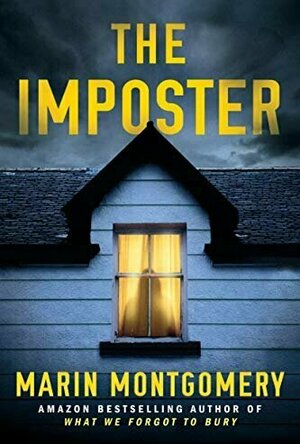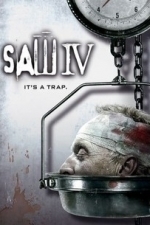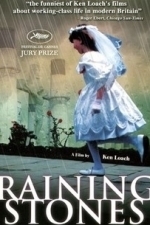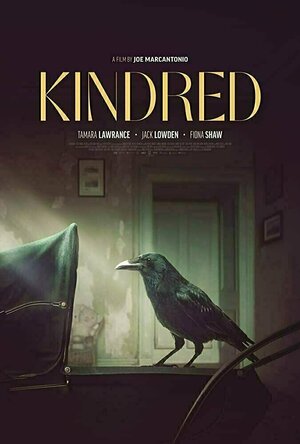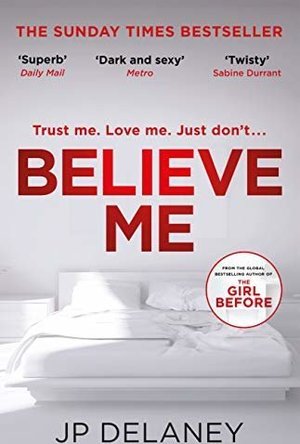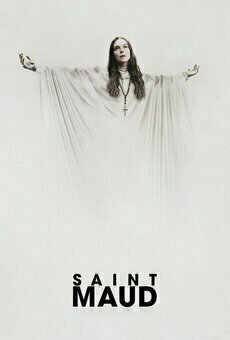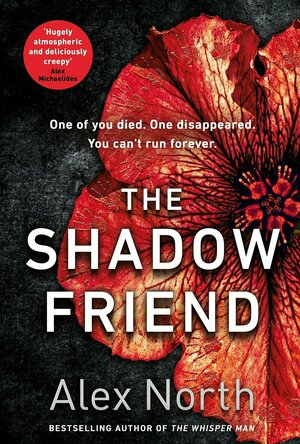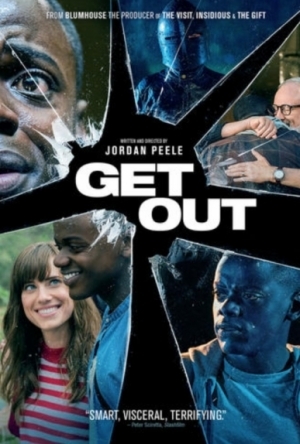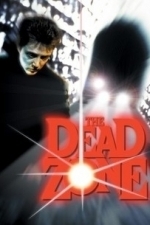Search
Search results
Neon's Nerd Nexus (360 KP) created a post
Dec 23, 2019
Kristy H (1252 KP) rated The Imposter in Books
Mar 11, 2021
A confusing mess of a thriller
Attorney Sibley Sawyer's life goes down in flames when her drinking finally catches up with her. Forced to take a leave of absence from her firm, Sibley seeks the perceived source of her problems: her mother, Deborah. The two have been estranged since Sibley fled home in her late teens. But when Sibley returns to the Midwestern farm where she grew up, she realizes her mother is acting odd. Perhaps it's due to her recent attack, when an intruder brutally beat her. Either way, as Sidney tries to make peace with Deborah, she starts to recall why she left in the first place--and uncovers even more shocking secrets about long ago happenings on the farm.
Well, the synopsis for this one sounded interesting, but this was a hot mess for me. I did not like much of this book at all, but kept reading because I needed to find out what happened. I think I was as confused as these hapless and unlikable characters, honestly. Deborah is clearly disoriented and bewildered throughout the book--alone and terrified on the farm--and it's nearly impossible to muddle through what's going on in her brain. Sidney is drinking heavily, and while I have complete sympathy for the disease of alcoholism, having lost a beloved relative to it, I'm tired of authors using the trope to give us an unreliable narrator with no real effort for a backstory or anything else.
Neither character comes across as particularly sympathetic, and I got rather tired of reading a book with my brow perpetually furrowed. It was not exciting, just confusing. The plot is truly bizarre, with some weird twists, but I felt I was reading to work out a bad puzzle. Maybe all this befuddlement would have been worth it if the probable "bad guy" had not been telegraphed from a mile away, but I had the outline of this figured out from the start.
Overall, as much as I regret it, this thriller did not work for me at all. It's confusing--but not in an exciting, psychological way, predictable, and filled with narrative threads that never seem to link back together. Others seemed to enjoy it more, so I hope that's the case for you if you pick it up.
I received a copy from Netgalley and Thomas & Mercer in return for an unbiased review.
Well, the synopsis for this one sounded interesting, but this was a hot mess for me. I did not like much of this book at all, but kept reading because I needed to find out what happened. I think I was as confused as these hapless and unlikable characters, honestly. Deborah is clearly disoriented and bewildered throughout the book--alone and terrified on the farm--and it's nearly impossible to muddle through what's going on in her brain. Sidney is drinking heavily, and while I have complete sympathy for the disease of alcoholism, having lost a beloved relative to it, I'm tired of authors using the trope to give us an unreliable narrator with no real effort for a backstory or anything else.
Neither character comes across as particularly sympathetic, and I got rather tired of reading a book with my brow perpetually furrowed. It was not exciting, just confusing. The plot is truly bizarre, with some weird twists, but I felt I was reading to work out a bad puzzle. Maybe all this befuddlement would have been worth it if the probable "bad guy" had not been telegraphed from a mile away, but I had the outline of this figured out from the start.
Overall, as much as I regret it, this thriller did not work for me at all. It's confusing--but not in an exciting, psychological way, predictable, and filled with narrative threads that never seem to link back together. Others seemed to enjoy it more, so I hope that's the case for you if you pick it up.
I received a copy from Netgalley and Thomas & Mercer in return for an unbiased review.
Jesters_folly (230 KP) rated Saw IV (2007) in Movies
Apr 13, 2021
Contains spoilers, click to show
Continuing on from the events of the previous film a new game is started as the last of the police officers from the other films are tested by jigsaw.
Like the previous films we have more traps and more people being tested and, of course things are not always what they seem.
With 'Saw 4' we get more of a feel of where the series is going, we see more of how Jigsaw recruits his assistants and how he intends to continue his work even when he no longer can.
We also get more on Jigsaws past, although, at times it does seem like it's contradicting what we already know everything comers together by the end of the film.
Saw 4 does a better job with the remaining characters from the previous films, keeping then through the film instead of killing them off in the first few minuets like they did in saw 3 and this film really does do a good job of tying up the loose ends from saw 3 and setting up things to come which is something which could have gone really wrong after the events of saw 3, other franchises have had problems bringing back their main killers and most of the way they used would not work with Saw as the franchise is more grounded in reality than a lot of other slasher type films.
I'm not sure how much of the story is planned ahead and how much is the writers checking the previous films for plot holes and then filling them in but Saw 4 does answer some questions, like how was Amanda able to lift some of her victims. The film also show us things like why Amanda uses a Pig mask.
The Gore level isn't as much as in Saw 3 and a lot of the 'game' is more psychological than the previous films but this fits the overall tone of the series and allows the film to give us more information via flashbacks, which are also used to throw the viewer off what is happening.
Saw 4 is more of the same, traps, games, blood and tests whilst also building on the law and setting up for more movies and ends leaving the viewer wanting more.
Like the previous films we have more traps and more people being tested and, of course things are not always what they seem.
With 'Saw 4' we get more of a feel of where the series is going, we see more of how Jigsaw recruits his assistants and how he intends to continue his work even when he no longer can.
We also get more on Jigsaws past, although, at times it does seem like it's contradicting what we already know everything comers together by the end of the film.
Saw 4 does a better job with the remaining characters from the previous films, keeping then through the film instead of killing them off in the first few minuets like they did in saw 3 and this film really does do a good job of tying up the loose ends from saw 3 and setting up things to come which is something which could have gone really wrong after the events of saw 3, other franchises have had problems bringing back their main killers and most of the way they used would not work with Saw as the franchise is more grounded in reality than a lot of other slasher type films.
I'm not sure how much of the story is planned ahead and how much is the writers checking the previous films for plot holes and then filling them in but Saw 4 does answer some questions, like how was Amanda able to lift some of her victims. The film also show us things like why Amanda uses a Pig mask.
The Gore level isn't as much as in Saw 3 and a lot of the 'game' is more psychological than the previous films but this fits the overall tone of the series and allows the film to give us more information via flashbacks, which are also used to throw the viewer off what is happening.
Saw 4 is more of the same, traps, games, blood and tests whilst also building on the law and setting up for more movies and ends leaving the viewer wanting more.
John Bradley recommended Raining Stones (1993) in Movies (curated)
Erika (17789 KP) rated Kindred (2020) in Movies
Jul 10, 2021
Kindred is a psychological thriller/horror about the reluctantly pregnant Charlotte (Tamara Lawrance) after her boyfriend, Ben (Edward Holcroft), dies in a workplace accident. After this accident, Charlotte is taken in by Ben’s mother (Fiona Shaw), and creepy stepbrother, Thomas (Jack Lowden). They proceed to basically torture her and question her sanity.
Prior to the accident, Charlotte and Ben visit the decrepit family home to announce they’re moving to Australia for a new start. It obviously did not go over well. After this visit, Charlotte finds out she’s pregnant, and that news gets passed around the small town, and that's how Ben finds out. Charlotte expresses that she doesn’t necessarily want the baby, but it was pretty much brushed aside – red flag, RUN GIRL!
This is when the main portion of the film begins, and they take her in under the guise of taking care of her and the baby. It was pretty obvious the only reason they took care of her, because she was the incubator for the grandchild.
This was basically a 21st Century version of Gaslight (1940/1944). The film wasn’t necessarily unique, and the ending was as expected. As always with films now, it’s about the journey, since you already know the end. There was very heavy-handed symbolism with the crow, which for me, began to get a little tedious, but I understood why it was there.
Full disclosure, I only watched the film because Jack Lowden was in it. I figured, if it’s not good, at least there was someone pretty to look at. As I watched this, I asked myself, is Thomas just a really beautiful dummy who constantly announces he’s making lunch? Hmm.
Tamara Lawrance was great in the film, she was compelling, and you did hope that she would be successful in escaping from the creepy family, and wallpaper-peeling house. Also, I liked that she correctly portrayed the serious frustration of expressing concern to doctors and other medical personnel, and not being taken seriously because the issues are related to female reproductive organs.
My curiosity was what made me keep watching, but I wasn’t necessarily completely engaged the entire time. The tension didn’t really stay the entire time. Although I did have the issues with the predictability, I did still surprising like the film. I’m glad I didn’t let it Rest in Peace in my Hulu watchlist graveyard.
Prior to the accident, Charlotte and Ben visit the decrepit family home to announce they’re moving to Australia for a new start. It obviously did not go over well. After this visit, Charlotte finds out she’s pregnant, and that news gets passed around the small town, and that's how Ben finds out. Charlotte expresses that she doesn’t necessarily want the baby, but it was pretty much brushed aside – red flag, RUN GIRL!
This is when the main portion of the film begins, and they take her in under the guise of taking care of her and the baby. It was pretty obvious the only reason they took care of her, because she was the incubator for the grandchild.
This was basically a 21st Century version of Gaslight (1940/1944). The film wasn’t necessarily unique, and the ending was as expected. As always with films now, it’s about the journey, since you already know the end. There was very heavy-handed symbolism with the crow, which for me, began to get a little tedious, but I understood why it was there.
Full disclosure, I only watched the film because Jack Lowden was in it. I figured, if it’s not good, at least there was someone pretty to look at. As I watched this, I asked myself, is Thomas just a really beautiful dummy who constantly announces he’s making lunch? Hmm.
Tamara Lawrance was great in the film, she was compelling, and you did hope that she would be successful in escaping from the creepy family, and wallpaper-peeling house. Also, I liked that she correctly portrayed the serious frustration of expressing concern to doctors and other medical personnel, and not being taken seriously because the issues are related to female reproductive organs.
My curiosity was what made me keep watching, but I wasn’t necessarily completely engaged the entire time. The tension didn’t really stay the entire time. Although I did have the issues with the predictability, I did still surprising like the film. I’m glad I didn’t let it Rest in Peace in my Hulu watchlist graveyard.
BookInspector (124 KP) rated Believe Me in Books
Sep 24, 2020
The protagonist in this story is Claire, an extremely talented, but very unlucky actress. Due to the lack of green card and work, she is forced to work as a decoy in catching out cheating spouses. Until one dies. Who is the killer? Is it Claire? Is it a victim’s husband? Or is it someone else altogether? You will have to read it to figure that out! 😛
This book has a very interesting variety of characters, we have elegant and artistic actors; classy, intelligent and very poetic victim’s husband, and like always, insightful police. But the real star in this book was Claire. Her ability to transform into different characters was absolutely stunning, and I really loved that she shared how these transformations made her feel. I think it was a great insight into actor’s psyche.
The narrative always kept me on the edge. There are so many twists and deception, that you never know what to expect next. Sometimes it feels, that the plot is slowing down, but that is just a very creatively incorporated “quiet before the storm” phase. 😉 The narrative was told from a single perspective, but that was necessary to keep the suspense going, and it was fully sufficient for me. This novel discusses quite a variety of topics, such as foster families in the UK; actor’s struggles in the market; kinky sex community; mental institutions and their work methods; art, and when it becomes a danger to society; etc. Due to this wide variety, the plot didn’t have the chance to be boring for me. 🙂
I really enjoyed the writing style of this book, it was very insightful and creative. The ending was absolutely mind-blowing, it left me absolutely baffled. I had to sit down and rethink all the plot, to figure out what was real and what was the illusion. The chapters are pretty short, and once I started, they just flew by. 🙂 I liked that the setting of this book was constantly changing, that created more intrigue to me, as a reader.
So, to conclude, it is a very artistic, poetic and sophisticated psychological thriller, where suspicions and illusion plays an integral part. I absolutely loved the complexity of the characters and unexpected turns and twists, that is why, I strongly recommend to read this book, and I hope you will enjoy it as much as I did. 🙂
This book has a very interesting variety of characters, we have elegant and artistic actors; classy, intelligent and very poetic victim’s husband, and like always, insightful police. But the real star in this book was Claire. Her ability to transform into different characters was absolutely stunning, and I really loved that she shared how these transformations made her feel. I think it was a great insight into actor’s psyche.
The narrative always kept me on the edge. There are so many twists and deception, that you never know what to expect next. Sometimes it feels, that the plot is slowing down, but that is just a very creatively incorporated “quiet before the storm” phase. 😉 The narrative was told from a single perspective, but that was necessary to keep the suspense going, and it was fully sufficient for me. This novel discusses quite a variety of topics, such as foster families in the UK; actor’s struggles in the market; kinky sex community; mental institutions and their work methods; art, and when it becomes a danger to society; etc. Due to this wide variety, the plot didn’t have the chance to be boring for me. 🙂
I really enjoyed the writing style of this book, it was very insightful and creative. The ending was absolutely mind-blowing, it left me absolutely baffled. I had to sit down and rethink all the plot, to figure out what was real and what was the illusion. The chapters are pretty short, and once I started, they just flew by. 🙂 I liked that the setting of this book was constantly changing, that created more intrigue to me, as a reader.
So, to conclude, it is a very artistic, poetic and sophisticated psychological thriller, where suspicions and illusion plays an integral part. I absolutely loved the complexity of the characters and unexpected turns and twists, that is why, I strongly recommend to read this book, and I hope you will enjoy it as much as I did. 🙂
Lee (2222 KP) rated Saint Maud (2020) in Movies
Oct 6, 2020
Saint Maud is a psychological horror about a young nurse (Morfydd Clark) who, following ‘an incident’ while working for the NHS, something horrific that is alluded to in the opening scene, now finds herself working in palliative care.
Maud is a lonely, isolated, and very religious young woman, and as she sits in her sparse little bedsit, she prays to God in the hopes that he will guide her as she begins her new role. That new role sees her taking over as carer for Amanda (Jennifer Ehle), an ex-dancer whose body is now succumbing to terminal cancer. As Maud feeds, bathes and generally does everything for Amanda, her obsession with her faith and religion begins to send her into a downward spiral, becoming increasingly convinced that her personal mission from God is to save Amanda's soul. Amanda’s lifestyle choices and love-life are often at odds with Maud’s beliefs, eventually resulting in tensions between them.
'In my head, she's very much this person who has felt really alienated her entire life and has always found it really difficult to connect with other people,' explains British director Rose Glass about the lead character of her feature-length debut. Morfydd Clark fills that role brilliantly, with her calm and innocent voice narrating much of the film through her prayers, and we experience her failed attempts at connecting with others while on a rather heavy and eventful night out on the town. An ominous score also helps to set the tone, along with a rather gloomy colour palette, and there is a general feeling of dread throughout.
Aside from that, it’s fair to say that Saint Maud really didn’t work for me at all. I was fully invested in the character of Maud, how faith was shaping her, and how her relationship with Amanda was affected. But two thirds into this slow-burn character study of a young woman essentially going through a breakdown, I was bored and desperate for something to happen. Considering the runtime is only 84 minutes long, that’s not good.
A last-minute burst of chaos and horror provided a glimmer of hope but was very short-lived. And an attempt to deliver powerfully, memorable imagery only resulted in laughs from my cinema audience the likes of which I haven’t experienced since the ending of Hereditary.
Maud is a lonely, isolated, and very religious young woman, and as she sits in her sparse little bedsit, she prays to God in the hopes that he will guide her as she begins her new role. That new role sees her taking over as carer for Amanda (Jennifer Ehle), an ex-dancer whose body is now succumbing to terminal cancer. As Maud feeds, bathes and generally does everything for Amanda, her obsession with her faith and religion begins to send her into a downward spiral, becoming increasingly convinced that her personal mission from God is to save Amanda's soul. Amanda’s lifestyle choices and love-life are often at odds with Maud’s beliefs, eventually resulting in tensions between them.
'In my head, she's very much this person who has felt really alienated her entire life and has always found it really difficult to connect with other people,' explains British director Rose Glass about the lead character of her feature-length debut. Morfydd Clark fills that role brilliantly, with her calm and innocent voice narrating much of the film through her prayers, and we experience her failed attempts at connecting with others while on a rather heavy and eventful night out on the town. An ominous score also helps to set the tone, along with a rather gloomy colour palette, and there is a general feeling of dread throughout.
Aside from that, it’s fair to say that Saint Maud really didn’t work for me at all. I was fully invested in the character of Maud, how faith was shaping her, and how her relationship with Amanda was affected. But two thirds into this slow-burn character study of a young woman essentially going through a breakdown, I was bored and desperate for something to happen. Considering the runtime is only 84 minutes long, that’s not good.
A last-minute burst of chaos and horror provided a glimmer of hope but was very short-lived. And an attempt to deliver powerfully, memorable imagery only resulted in laughs from my cinema audience the likes of which I haven’t experienced since the ending of Hereditary.
BookInspector (124 KP) rated The Shadow Friend in Books
Jan 26, 2021
The protagonist of this story is Paul. He has to come back to a miserable town where he grew up after he found out that his mother is about to die. Paul hates that town for so many reasons, but mainly because of what happened when he was young. This book is told from a dual perspective. Another character sharing details is Amanda, she is a detective, investigating a murder, that looks exactly like the one that happened many many years ago. Amanda has her own issues, and she is kind of a background character in this book. I liked Paul as a character, he was a good kid, he is awkward, but a nice guy. All the characters chosen in this novel are quite mysterious, and the whole book has a very depressing and gloomy atmosphere, that works very well in Alex North’s books.
The narrative of this novel is exceptionally well written. The author used a dual timeline, we have the events happening now, and the events that happened when Paul was young. My favourite was the ones from the past, of course. It absolutely absorbed me, I was so eager to find out what happened all those years ago. The parts from the present were quieter and more self-reflecting, sharing the inner struggles, but creepy nevertheless. This book is very twisty, and some of the turns really left me gobsmacked and surprised. The topics discussed in this novel were lucid dreaming, bullying, wish to belong, abusive parents, mental abuse, dementia and its effects, parent-child relationships, the influence of the internet and many, many more.
I really love Alex North’s writing style. He is amazing in creating suspense, and all the mind manipulation of the reader was truly amazing. 🙂 The chapters are quite short, I was engrossed in this novel, so the pages just flew by, for me. The ending was shocking and very unexpected, but I did like the way this novel ended. I hope someone will adopt this novel to a film, I am pretty sure it would be wickedly good. 🙂
So, to conclude, I really liked this horror psychological thriller. The characters are very mysterious and the plot is absorbing, layered and complex. This book left me emotionally shaken in the best possible way, and I really recommend to those, who would like something creepy.
The narrative of this novel is exceptionally well written. The author used a dual timeline, we have the events happening now, and the events that happened when Paul was young. My favourite was the ones from the past, of course. It absolutely absorbed me, I was so eager to find out what happened all those years ago. The parts from the present were quieter and more self-reflecting, sharing the inner struggles, but creepy nevertheless. This book is very twisty, and some of the turns really left me gobsmacked and surprised. The topics discussed in this novel were lucid dreaming, bullying, wish to belong, abusive parents, mental abuse, dementia and its effects, parent-child relationships, the influence of the internet and many, many more.
I really love Alex North’s writing style. He is amazing in creating suspense, and all the mind manipulation of the reader was truly amazing. 🙂 The chapters are quite short, I was engrossed in this novel, so the pages just flew by, for me. The ending was shocking and very unexpected, but I did like the way this novel ended. I hope someone will adopt this novel to a film, I am pretty sure it would be wickedly good. 🙂
So, to conclude, I really liked this horror psychological thriller. The characters are very mysterious and the plot is absorbing, layered and complex. This book left me emotionally shaken in the best possible way, and I really recommend to those, who would like something creepy.
Gareth von Kallenbach (980 KP) rated Get Out (2017) in Movies
Jul 12, 2019
ritten and directed by Jordan Peele, “Get Out” is not so much an actual horror film but more of a dark comedy. The plot is filled with political undertones, spotlighting awkward racial interactions that are shadowed by systemic inequality.
Chris Washington (Daniel Kaluuya) and Rose Armitage (Allison Williams) are a vibrant young couple living in the city. He’s a photographer. Not sure what she does. He’s black. She’s white. After dating for four months, Rose convinces Chris to go on a trip to meet her parents. Chris is apprehensive at first and skeptical about how her parents will react to meeting their daughter’s black boyfriend. Rose laughs that off and everything seems fine as they head to the country.
From this point forward the film starts to build in creepiness. It almost has the feel of an M. Night Shayamalan movie like “The Village.” As the plot develops, the audience knows they are supposed to be suspecting something creepy and sinister hiding behind images of normalcy. So everything begins to take on this feel. Rose’s family lives in a creepily perfect mansion in the country. They have a creepily quiet black groundskeeper and a creepily happy black maid.
Fortunately, two things save this film from becoming a hokey Shyamalan style disappointment. The plot is executed in a comedic fashion and it isn’t completely predictable.
The entire film balances a creepy-funny style. Moments of white people awkwardly trying to appear not-racist also build a suspenseful feeling that something darker is behind the surface.
Rose’s mom Missy (Catherine Keener) specializes in hypnosis. It quickly becomes clear that Missy is using mind control tactics to basically enslave black people. Under her spell, her victims take a psychological fall into a dark abyss and are left in a robotic state. It would have been nice if this aspect of the plot was given more screen time.
The film picks up pace when Rose’s parents host a “family” get together that actually turns out to be essentially a “slave” auction. It almost takes too much time to get to this point in the plot. A few more moments, and it would begin to feel like trudging through a repetitious build up. From here forward, it becomes pretty fast paced as Chris desperately tries to escape a horrific fate.
“Get Out” probably won’t actually scare anyone, but it is highly entertaining in a very dark way.
Chris Washington (Daniel Kaluuya) and Rose Armitage (Allison Williams) are a vibrant young couple living in the city. He’s a photographer. Not sure what she does. He’s black. She’s white. After dating for four months, Rose convinces Chris to go on a trip to meet her parents. Chris is apprehensive at first and skeptical about how her parents will react to meeting their daughter’s black boyfriend. Rose laughs that off and everything seems fine as they head to the country.
From this point forward the film starts to build in creepiness. It almost has the feel of an M. Night Shayamalan movie like “The Village.” As the plot develops, the audience knows they are supposed to be suspecting something creepy and sinister hiding behind images of normalcy. So everything begins to take on this feel. Rose’s family lives in a creepily perfect mansion in the country. They have a creepily quiet black groundskeeper and a creepily happy black maid.
Fortunately, two things save this film from becoming a hokey Shyamalan style disappointment. The plot is executed in a comedic fashion and it isn’t completely predictable.
The entire film balances a creepy-funny style. Moments of white people awkwardly trying to appear not-racist also build a suspenseful feeling that something darker is behind the surface.
Rose’s mom Missy (Catherine Keener) specializes in hypnosis. It quickly becomes clear that Missy is using mind control tactics to basically enslave black people. Under her spell, her victims take a psychological fall into a dark abyss and are left in a robotic state. It would have been nice if this aspect of the plot was given more screen time.
The film picks up pace when Rose’s parents host a “family” get together that actually turns out to be essentially a “slave” auction. It almost takes too much time to get to this point in the plot. A few more moments, and it would begin to feel like trudging through a repetitious build up. From here forward, it becomes pretty fast paced as Chris desperately tries to escape a horrific fate.
“Get Out” probably won’t actually scare anyone, but it is highly entertaining in a very dark way.
DaveySmithy (107 KP) rated The Dead Zone (1983) in Movies
Dec 3, 2024
A Chilling and Thoughtful Thriller
David Cronenberg’s The Dead Zone (1983) is a film that quietly lingers with you long after the credits roll. Adapted from Stephen King’s novel, it’s a rare blend of psychological horror, heartfelt drama, and supernatural thriller that doesn’t rely on cheap scares to grip its audience. Instead, it uses its haunting premise, a strong central performance by Christopher Walken, and Cronenberg’s understated direction to craft a deeply unsettling exploration of fate, morality, and the burden of knowing the future.
The story follows Johnny Smith (Walken), an ordinary schoolteacher whose life is upended when a car accident leaves him in a coma for five years. When he awakens, he discovers he has gained the ability to see people’s pasts and futures through physical contact—a gift that feels more like a curse. What begins as an attempt to understand and use this newfound power for good spirals into a dark moral dilemma when Johnny foresees a catastrophic future involving a rising politician, Greg Stillson (Martin Sheen).
Christopher Walken is the emotional core of the film, delivering one of his most human and vulnerable performances. He masterfully conveys Johnny’s pain, loneliness, and reluctant heroism, making his character deeply sympathetic. Walken’s portrayal grounds the supernatural elements of the story, ensuring they never feel far-fetched. Martin Sheen is equally compelling as the menacing and unhinged Stillson, a character whose ambition and ruthlessness are frighteningly plausible.
Cronenberg, known for his visceral body horror, takes a restrained approach here, focusing on mood and atmosphere over gore. This subtlety works to the film’s advantage, allowing the tension to simmer until its gripping climax. The muted color palette and moody score by Michael Kamen add to the sense of dread, perfectly capturing the eerie small-town setting.
However, The Dead Zone isn’t without its flaws. The pacing occasionally drags, and some of the supporting characters feel underdeveloped. Additionally, the episodic structure—though true to the novel—can make the narrative feel uneven.
Despite these minor issues, The Dead Zone is an intelligent and emotionally resonant thriller that explores heavy themes with nuance. It may not be as flashy as other Stephen King adaptations, but its quiet power and moral complexity make it a standout. A solid 8/10.
The story follows Johnny Smith (Walken), an ordinary schoolteacher whose life is upended when a car accident leaves him in a coma for five years. When he awakens, he discovers he has gained the ability to see people’s pasts and futures through physical contact—a gift that feels more like a curse. What begins as an attempt to understand and use this newfound power for good spirals into a dark moral dilemma when Johnny foresees a catastrophic future involving a rising politician, Greg Stillson (Martin Sheen).
Christopher Walken is the emotional core of the film, delivering one of his most human and vulnerable performances. He masterfully conveys Johnny’s pain, loneliness, and reluctant heroism, making his character deeply sympathetic. Walken’s portrayal grounds the supernatural elements of the story, ensuring they never feel far-fetched. Martin Sheen is equally compelling as the menacing and unhinged Stillson, a character whose ambition and ruthlessness are frighteningly plausible.
Cronenberg, known for his visceral body horror, takes a restrained approach here, focusing on mood and atmosphere over gore. This subtlety works to the film’s advantage, allowing the tension to simmer until its gripping climax. The muted color palette and moody score by Michael Kamen add to the sense of dread, perfectly capturing the eerie small-town setting.
However, The Dead Zone isn’t without its flaws. The pacing occasionally drags, and some of the supporting characters feel underdeveloped. Additionally, the episodic structure—though true to the novel—can make the narrative feel uneven.
Despite these minor issues, The Dead Zone is an intelligent and emotionally resonant thriller that explores heavy themes with nuance. It may not be as flashy as other Stephen King adaptations, but its quiet power and moral complexity make it a standout. A solid 8/10.
